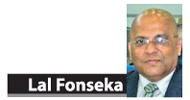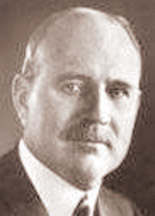DAD GREATEST, anyone ?
 A well-known sociologist, Dr. David Popenoe, is one of the pioneers
of the relatively young field of research into fathers and fatherhood.
"Fathers are far more than just 'second adults' in the home," he says.
"Involved fathers bring positive benefits to their children that no
other person is as likely to bring." A well-known sociologist, Dr. David Popenoe, is one of the pioneers
of the relatively young field of research into fathers and fatherhood.
"Fathers are far more than just 'second adults' in the home," he says.
"Involved fathers bring positive benefits to their children that no
other person is as likely to bring."
Any father who likes to see the positive development of his children
will have to agree with the above statement. Fathers have a direct
impact on the well-being of their children. So then how about mothers?
Can a child develop without the support of the mother? Answers to the
last question will be a very difficult one to find. However whatever the
answer you find, I feel her presence is utmost important. Without the
proper care given by the mother to the child, he or she will have lot of
difficulties in developing his or her future career.
 The well accepted fact is that a child who has both a mother and a
father benefits from an increased richness of care. In other words,
children with both a mother and a father can benefit from more caring,
as well as a variety of caring styles. But in the past there were
stories which we can find to disapprove the above statement. One such
person is Charles W Nash a very well-known American who came up to a
very high prestigious position in the Automobile industry without the
assistance of parents. The well accepted fact is that a child who has both a mother and a
father benefits from an increased richness of care. In other words,
children with both a mother and a father can benefit from more caring,
as well as a variety of caring styles. But in the past there were
stories which we can find to disapprove the above statement. One such
person is Charles W Nash a very well-known American who came up to a
very high prestigious position in the Automobile industry without the
assistance of parents.
Charles W Nash was the fifth President of General Motors. He was
elected to this position on November 19, 1912 and under his leadership,
General Motors made immense gains in profits earned and vehicles
produced.
Nash was born in January 28, 1864 on a farm in DeKalb County,
Illinois. When he was six years old, his parents separated and his
future was shaped by the courts. Under a guardianship court order, the
young man was sent to live and work for farmer named Robert Lapworth
near Flushing, Michigan. Nash was bound to work for Lapworth until he
was 21 years old, earning only room and board during that time. Under
this arrangement, he worked for about 50 cents a month. Within six
years, Nash had had enough of his indenture to Lapworth and left the
farm to make a new start.
Charles Nash was an industrious young man. He was able to make a
living and accumulate a modest savings working on various farms in
Michigan. With his savings Nash purchased a herd of sheep that continued
to grow and provided him with a bit of financial security. In 1890, six
years after marrying a young woman named Jessie Halleck, the young
couple moved to Flint to be closer to medical aid when she took ill. It
was in Flint that Nashís destiny would become entwined with Billy Durant
and the fledgling automobile industry.
|

Charles W Nash |
Upon moving to Flint, Charles Nash was quick to secure employment. He
went to work as a clerk at W C Pierce grocery and hardware store and
also did Sunday chores on a farm owned by carriage maker J Dallas Dort.
It was at the Pierce grocery and hardware store that Dortís partner
William C Durant noticed the hard-working Nash. Soon Nash was asked to
join their business, the Flint Road Cart Company (soon to be the Durant-Dort
Carriage Company). He began as a simple upholstery stuffer but within
six months, his work ethic had earned him the position of plant
superintendent. Within ten years, Nash had become vice president and
general manager of Durant-Dort during which time he had developed the
straight-line belt conveyor system of assembly that would later become
standard practice within the automobile industry. His successes in the
carriage business would eventually lead him to General Motors.
In 1910, two years after Billy Durant founded General Motors and the
same year he was ousted from power by the controlling banking trust,
Charles Nash was asked to take the presidency of the Buick Motor
Company. It was at Durantís suggestion that the offer was tendered to
him. Nash quickly impressed the bankers with his managerial style as he
was the yin to Durantís yang. Alfred P Sloan, Jr., future GM president
and chairman, noted in his autobiography that Nash "was as steady and
careful as Mr. Durant was brilliant and daring Ė or reckless, as you may
choose to call it." During his time at Buick, he and his hand-picked
works manager Walter P Chrysler returned glory to Billy Durantís first
prominent automobile venture with net profits increasing from $500,000
in 1911 to $14,000,000 by 1914.
Nash and Sloan
As a stabilising force within General Motors, Charles Nash had earned
the trust of the bankers who controlled the board of directors. As such,
they elected him president of the General Motors Company in 1912 with
the idea that his leadership would allow the company to regain the
financial position it lost during Durantís period of rapid acquisitions.
They were right. During the three plus years that Nash was president,
General Motors saw a dramatic increase in profits. In fact, from 1914 to
1916 annual profits doubled each year and production had tripled.
Late 1915 and early 1916 was a tumultuous time for General Motors as
Billy Durant attempted to reassert his control over the company. Nash
found himself caught in the power struggle between Durant and bankers.
As much as he admired Durant and felt indebted to him for his start in
the carriage business, Nash knew that he could not lead General Motors
if Durant was in the picture. When Durant announced he had once again
controlled the majority of voting stock in General Motors in May 1916,
Nash made a decision to move on from the company. On June 1st, he
resigned his position despite offers made by Durant. About his
resignation, Nash is quoted as saying "When Durant regained control, his
policies and mine were so at variance that I resigned and started my own
company. I hate to tell you the salary that was offered to me by Durant
if I would stay. It was more than a manís worth. But I had wanted to for
years to build my own car."
In July of 1916, Charles Nash purchased the Thomas B Jeffery Company
of Kenosha, Wisconsin and changed its name to Nash Motors Company. One
of the first major investors in Nash Motors was Alfred P Sloan, Jr.
Within ten years, Nash was producing more than 130,000 vehicles a year.
Nash Motors had staying power. The company would outlast the majority of
its contemporaries and would eventually be rolled into American Motors
Corporation.
Charles Nash retired from his namesake company in 1936. He lived a
life of quiet retirement until the death of his wife in 1947. He died
shortly after in 1948 leaving behind a long legacy of automotive
successes. (http://history.gmheritagecenter.com)
One could argue to say that the above is only a rare happening which
occurred in America a long time ago. Another argument some other person
could bring in is that all other successful people who reached the top
levels of their career with the support and encouragement of parents. My
counter argument is that it was not the only occasion where people have
reached their high successes without the assistance of the parents. More
and more events of the above nature could be highlighted even from our
own country. However It is true that when the children has the blessings
and support of the parents, they could plan their future strategies much
more effectively than those who do not have parents. In this column, we
will now discuss the role of a father towards a childís development.
Fathers in the family system
It is my belief as the child psychologist that the role of fathers in
the family system is the way as to how father interacts with his child's
mother. This is mainly because the relationships which children observe
and experience at an early age influence their own relationships later
in life. And also, it is because family relationships are
interrelated-the way that mothers and fathers interact affects the
mother-child relationship as well as the father-child relationship. If
the father-mother relationship is not much sound, the children of such
parents will have a similar set up later in their life.
In our country, it is very much evident that mothers are typically
viewed as overseeing their child's education and development, while
fathers are thought to be less involved. Even for a parentsí meeting at
school, we could see more mothers than fathers are attending. Sometimes,
some children are represented in such meetings by grandmothers. They may
be having good reasons for such failures. But when it comes to decision
making, the poor mother at these meetings become helpless.
One important point our fathers do always forget is that strong
influences on the child and family unit, fathers affect their child's
cognitive, personal-social, and sex-role identification development.
Children who have positive relationships with their fathers tend to have
higher achievement, motivation, cognitive competence, and better social
skills.
Factors that influence a father's relationship with his child include
the parents' employment, their personal and cultural characteristics,
and the child's traits (including temperament and gender).
Fatherhood
One father quoted me the following story. One evening around 7pm his
son had shown his anger. The son is around 16 years of age. This father,
we will name him as Sunil for our convenience had said one of those
things that parents would normally say, like "This is not a time to be
in bed."
His son had looked up at him furiously and said, "I wish I did not
have a dad of your caliber. Instead, I wish I would have had a father
like my friend Ranjith who never interferes with Ranjithís day to day
life. Sunilís son had stopped for a while and finally he had said, "I am
sorry." Can a father allow his son of 16 years of age to go to bed at
7pm which is very early stage of night when he had got to do lot of home
works to attend?
Whether children realise it or not, fathers play an important role in
their child's development. One particular scholar has stated that we
currently live in the best of times and the worst of times for
fatherhood. We live in the best of times because fathers who are engaged
in their child's life spend more time than fathers of any previous
generation. We live in the worst of times because millions of children
continue to miss the regular presence of father.
What difference does a father make? Are they really that important?
For the most part, studies have consistently demonstrated that
fathers-whether they live with their children or not, matter in the
lives of their children. When fathers are present, they provide economic
support for their children and assume emotional and caregiving
responsibilities. Well-fathered children are shown to be more
emotionally intelligent and socially successful as adults.
When fathers are absent, their absence may negatively impact child's
academic achievement, gender-specific development, general behavioral
adjustment and anger management, especially in males.
Warm and emotional
Yet just being physically present is not enough to be a great father.
It is critical that a father be warm and emotionally available to his
child. There cannot be any confrontation when I name the father as the
"emotion coaching father." Emotion Coaches are parents who listen to
their child's feelings, see the sharing of feelings as an opportunity
for intimacy, and validate their child's emotions. When we look at this
problem from a different angle, a parent's attitude toward emotions can
have a big impact on the way children learn to cope with feelings.
Second, children whose parents respond to their emotions with patience
and empathy do better in lots of ways, including academic achievement,
better overall health, and stronger friendships, among other things.
While children may not always recognize the importance dad plays in
their lives, most children long for and need a loving, involved and
responsible father or father-figure.
The modern day father who is living in the 21st century comes in
various forms. In our early days, our fathers are always the traditional
married and disciplinarian in the family. But in todayís culture
everywhere in the world, he can be single or married; externally
employed or stay-at home; and a more than capable caregiver to children
facing physical or psychological challenges. Psychological research
across families from all ethnic backgrounds suggests that fathersí
affection and increased family involvement help promote childís social
and emotional development.
What has brought this change in roles for men as fathers?
Economic trends
Two to three centuries ago, fathersí roles were primarily to serve as
breadwinners and the conveyers of moral values and religious education
to their children. However, with the advent of industrialisation and
urbanisation and as factories emerged as major sources of employment,
fathers became distanced from the household and their families. Growing
rates of abandonment and illegitimacy led to the development of welfare
programs to assist widowed or unmarried women in supporting their
children.
In more recent decades, the changing economic role of women has
greatly impacted the role of fathers. Between 1948 and 2001, the
percentage of working age women employed or looking for work nearly
doubled.
Their increase in financial power made paternal financial support
less necessary for some families. In tandem with the growing autonomy of
women, related trends such as declining fertility, increasing rates of
divorce and remarriage have resulted in a transition from traditional to
multiple undefined roles for many fathers.
Todayís fathers have started to take on roles vastly different from
fathers of previous generations.
The below are the few tips for fathers who need to be the best
possible fathers in the globe.
They (My children) call me father. Why they call me the father?
They, and my wife, are the reasons for my being as the father. Now it
is my responsibility to look after them. My lifelong goal is to be the
best father possible.
This is how I looked at my family as the father.
If the other fathers too have the same thinking and action, what a
nice world it would turn into.
Still I know being a proud father who wants to best possible father
in the world, there are many ways I can still improve.
However, I think Iím a pretty great dad already, when I sit back and
think about it. I know there are some readers who are just starting out
in their careers as fathers, and this post is for you. |







